This page compiles two sets of questions sent to the Co-operative Bank about the 2021 Ethical Poll, and the bank’s responses.
General remarks
Co-op Bank: We are not looking to remove anything from the Policy, similar to in previous years, we will be building upon the existing commitments to ensure the Policy and our ethical screening continues to reflect the up to date issues that our customers are concerned about as well as those that they’ve previously told us about.
Climate change
Save Our Bank: The policy on climate change is missing the current exclusion of finance for the “distribution of those fuels that have a higher global warming impact (e.g. tar sands and certain biofuels)”. We hope the bank will maintain this position, and indeed go further towards ensuring its business is fully aligned with the ambitions of the Paris Agreement.
Co-op Bank: YouGov gave us limit on the number of options we were able to present to customers within each question set and therefore had to be economical within some of the larger sections. We do not plan to remove this exclusion from the Ethical Policy.
Save Our Bank: The Ethical Policy includes a commitment to seek to support businesses involved in renewables and energy efficiency. This is missing from the poll. Will this be maintained in the new policy, or does this indicate it could be removed?
Co-op Bank: It will be maintained. Supporting renewables and sustainable businesses has really become part of our BAU [Business as Usual] activity and is so expected by our customers we didn’t feel it required calling out in the poll.
Animal welfare
Save Our Bank: “The bank also proposes a policy not to provide “banking services to organisations which are involved in the exploitation of animals”. This is a revision on the previous position which referred only to the exploitation of great apes. It is not entirely clear to us what the bank is proposing here – we could read this as excluding all forms of animal farming, which would be a radical proposal that would be welcome to some customers but not others.”
Co-op Bank: “There is no suggestion that we would look to exclude all forms of animal farming but we would consider strengthening our exclusions regarding animal welfare and providing support for those businesses operating to the highest welfare standards. The question aims to gauge opinion on the possibility of formally extending the Ethical Policy to include industries other than traditional farming, for example some puppy farms or businesses where animals are used for entertainment purposes without appropriate welfare standards in place.”
Human rights and armaments
Save Our Bank: The Ethical Policy commitment to avoid financing businesses "with links to oppressive regimes that are a cause for concern" is absent from the poll. Will this be maintained in the new policy?
Co-op Bank: This will be maintained and again, has become part of BAU [business as usual] for the Bank.
Save Our Bank: The proposed statement in the new poll suggests the whole of the arms trade is excluded. ('Not providing banking services to organisations involved in the manufacture or trade of weapons and armaments, for example those supplied to oppressive regimes' - my emphasis). The bank's Ethical Policy has until now always singled out arms sales to oppressive regimes as unacceptable. … Is the bank proposing/planning to remove this distinction and exclude the whole defence sector?
Co-op Bank: No.
Save Our Bank: There's a proposal to screen out the adult entertainment industry in the new poll. This is a complex area with arguments on both sides, and we would be keen to understand how you have considered the human rights aspects of this proposal (e.g. with human rights watch supporting decriminalisation of sex work, excluding the sector seems to run against this recommendation). Also whether you have consulted with human rights groups regarding the proposal?
Co-op Bank: We’re interested to hear our customer’s views on businesses involved in adult entertainment. We’ll conduct further research via focus groups and consultations with relevant organisations should this emerge as an important issue that warrants a change in our existing approach, which is focused on businesses that fail to protect children from exposure to explicit material.
Responsible tax
Save Our Bank: The policy not to provide finance to businesses that “take an irresponsible approach to the payment of tax in the UK and elsewhere” has been split into two, one position covering international business and one covering UK business. For international business, the statement in the poll is that the bank will “not providing banking services to organisations that illegally avoid paying tax in developing countries.” However, when it comes to tax there is a world of difference between irresponsible and illegal. The systematic use of tax havens to avoid paying taxes in developing countries, for example.
Co-op Bank: While we appreciate the harm that can be caused within developing countries through avoidance of tax, we've realised that it is incredibly difficult to enforce this statement due to limitations of the information available. Since the statement on payment of tax was added to the Ethical Policy, there has been insufficient evidence to allow us to decline services to any companies based on this but we will of course continue to screen for this.
Save Our Bank: Does this mean this will remain in the policy?
Co-op Bank: We would expect so.
External auditing and assurance
Save Our Bank: Finally, on external auditing and assurance, it was a shame that a statement on this was absent from the poll, given the commitments the bank has made to return to external assurance of ethical policy implementation and V&E reports. A statement in the final Policy committing to external auditing of policy implementation would be very welcome, and would help build trust that the bank will indeed return to external assurance and stick with it for the long term. Is this something the bank can still consider?
Co-op Bank: We appreciate the importance of external assurance and this becoming a requirement for some elements of sustainability reporting within our industry. It therefore may not be relevant to include a specific statement within the Ethical Policy, although this will be considered.



 info@saveourbank.coop
info@saveourbank.coop @SaveOurBank
@SaveOurBank @saveourbank
@saveourbank
